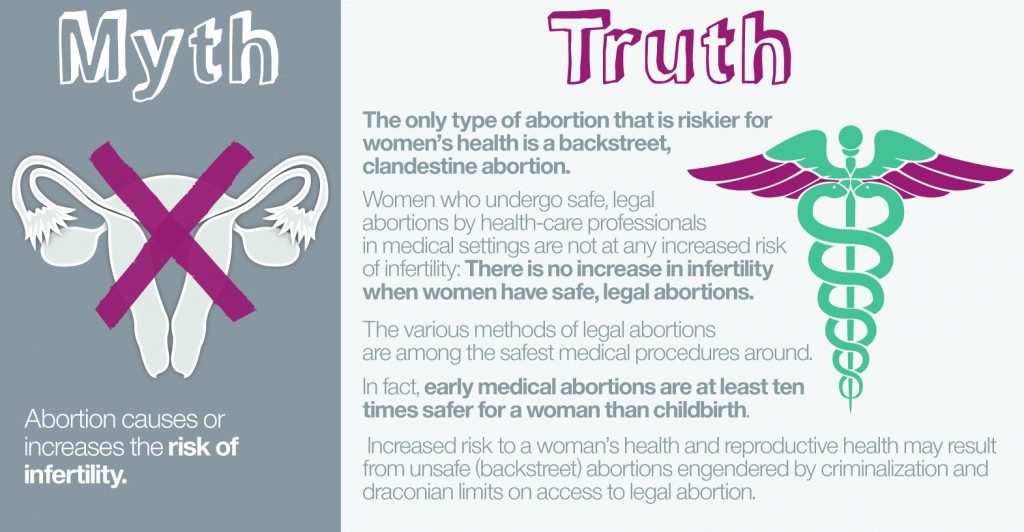Welcome to Day 7 of ‘8 Days – 8 Reasons to Repeal the 8th’, where each day running to International Women’s Day, Abortion Rights Campaign will be busting 1 common myth about abortion in Ireland.
So check back here for tomorrow’s final myth and tweet your own at us @freesafelegal and using #RepealThe8th.
Today, in partnership with Doctors for Choice, we bring you:
Myth #7: Abortion causes/increases the risk of infertility
But the truth is much simpler:
Truth #7: There is no increase in infertility when women have safe, legal abortions.
There is no reliable evidence to support the claim that undergoing a safe (legal) abortion hinders a woman’s ability to become pregnant again. Nevertheless, this myth persists in anti-choice scaremongering efforts and is, along with other medical disinformation, a favourite of self-appointed ‘counsellors’ in rogue crisis pregnancy agencies.
Many proponents of this myth suggest that surgical (as opposed to medical) abortions involve the use of sharp instruments that can tear the tissue of the cervix or uterus and cause infection. However, the instruments used in surgical abortion procedures nowadays, particularly in early surgical abortions (by far the most common), are mostly purposefully blunt and, of course, sterilised. All medical procedures carry risks, but the risk of any cervical or uterine damage from legal abortion is minute.
Women who undergo safe, legal abortions by health-care professionals in appropriate medical environments are not at any increased risk of infertility. Comprehensive reviews of the data show that a suction aspiration procedure in the first trimester, for example, poses virtually no risk to future reproductive health. Early medical abortions are even safer—in fact at least ten times safer than childbirth.
Conversely, unsafe (backstreet) abortions can carry significant risks, including infection due to unsterilised equipment and dangerous techniques. Such infection can lead to infertility, particularly if the infection goes untreated. Women in such circumstances will often not present to medical professionals for appropriate aftercare for fear of prosecution because of punitive abortion laws. The possible fourteen-year jail sentence written into last year’s abortion legislation for someone who procures an abortion outside of the law’s draconian limits is, to say the least, deeply unhelpful in this regard.
Of course, every medical procedure carries some degree of risk, abortion being no exception to this rule. The various methods of legal abortion, however, are among the safest medical procedures around.
Decriminalising abortion is vital to safeguarding women’s reproductive health by reducing the risks associated with unsafe abortion.


